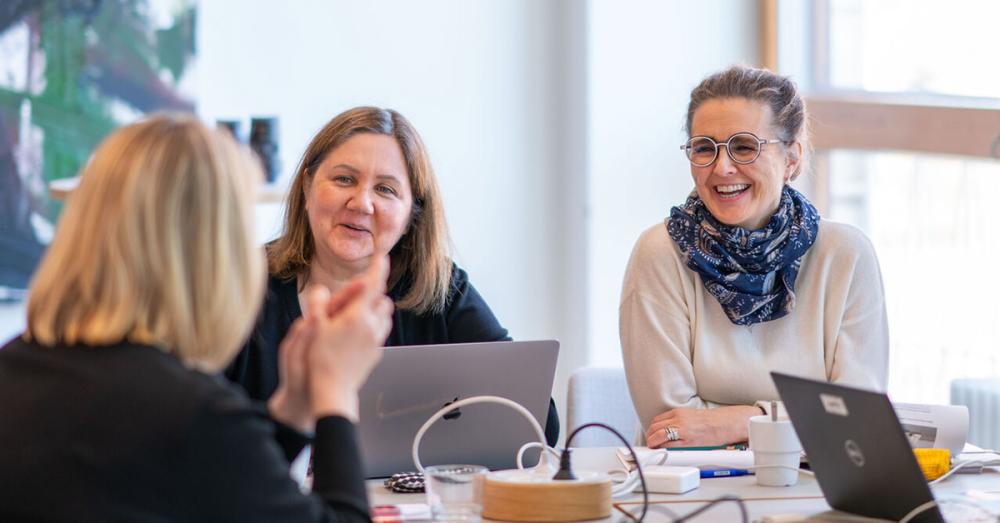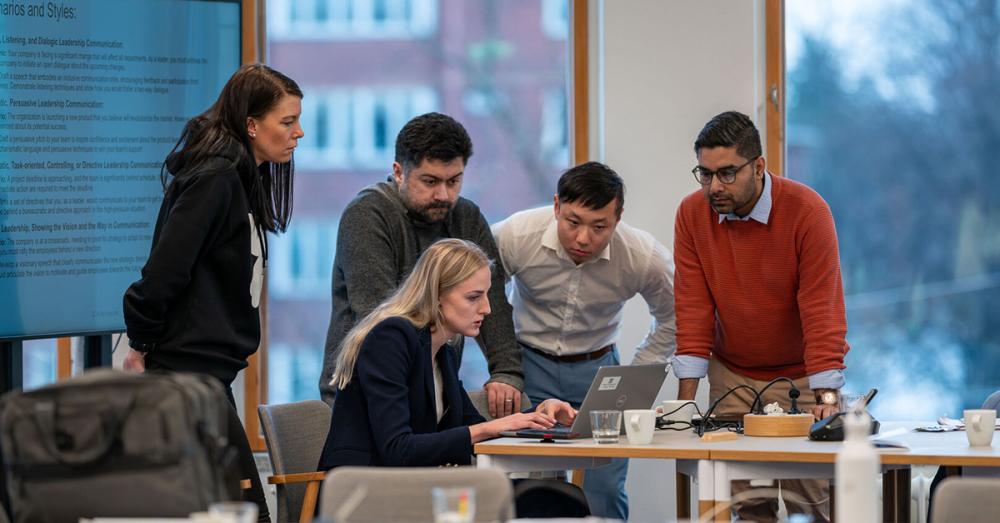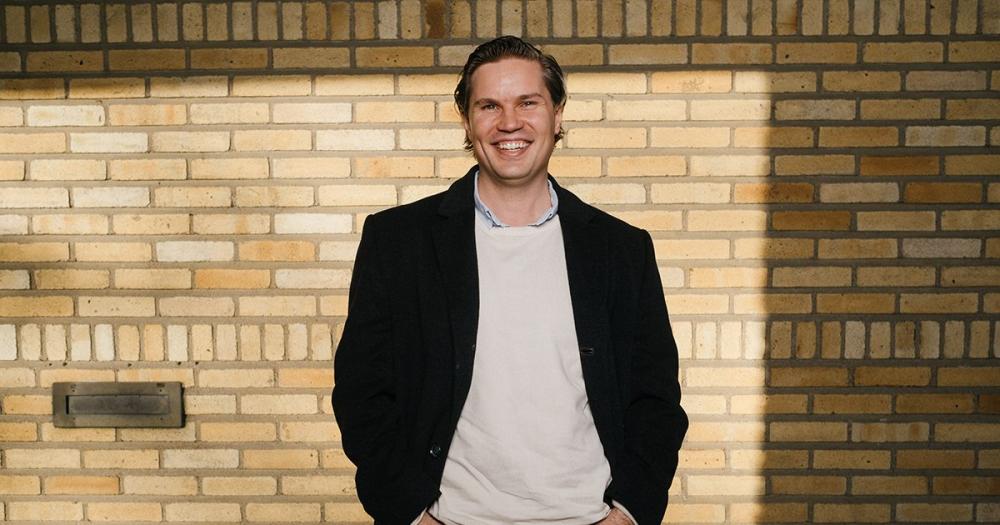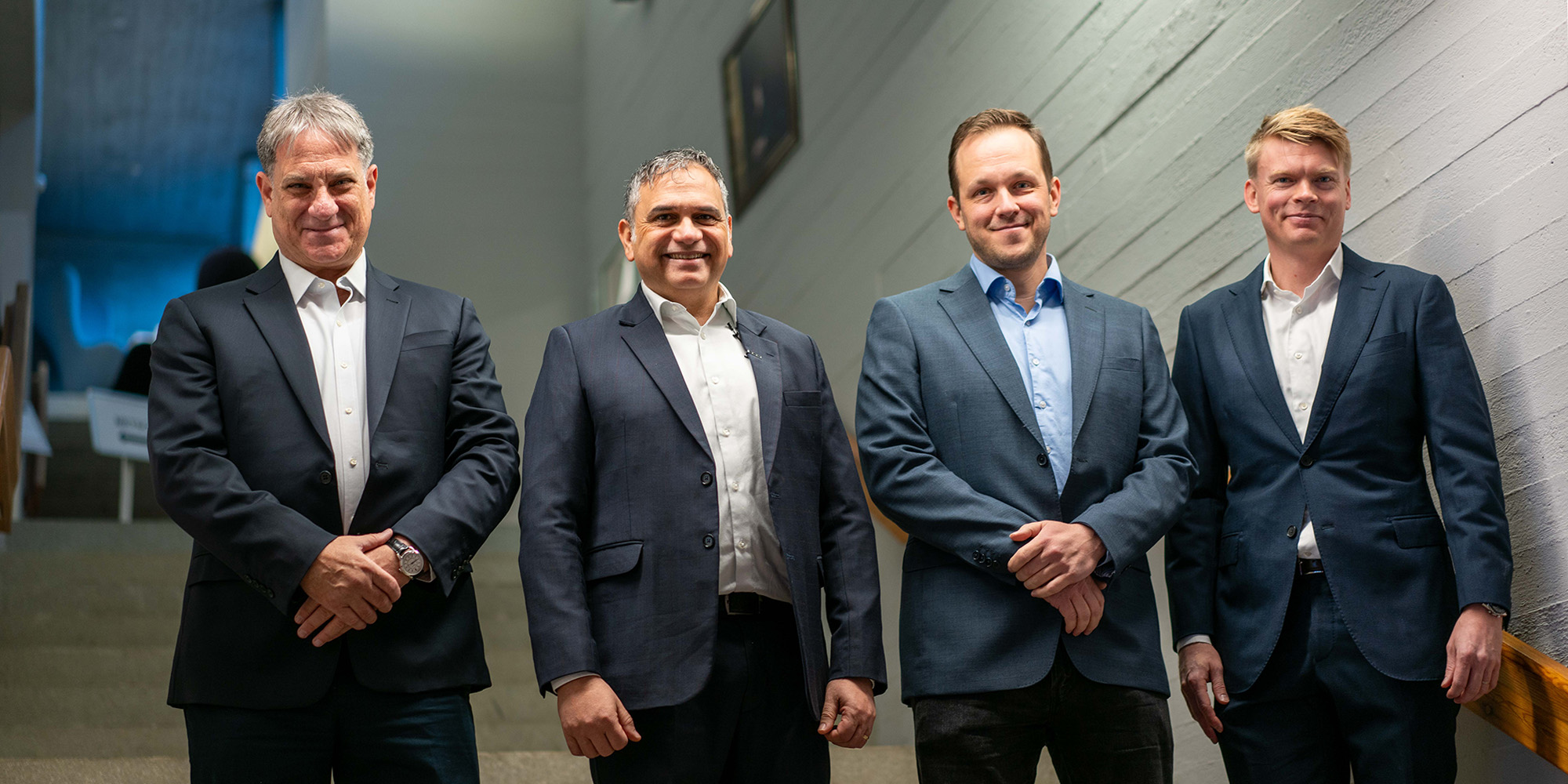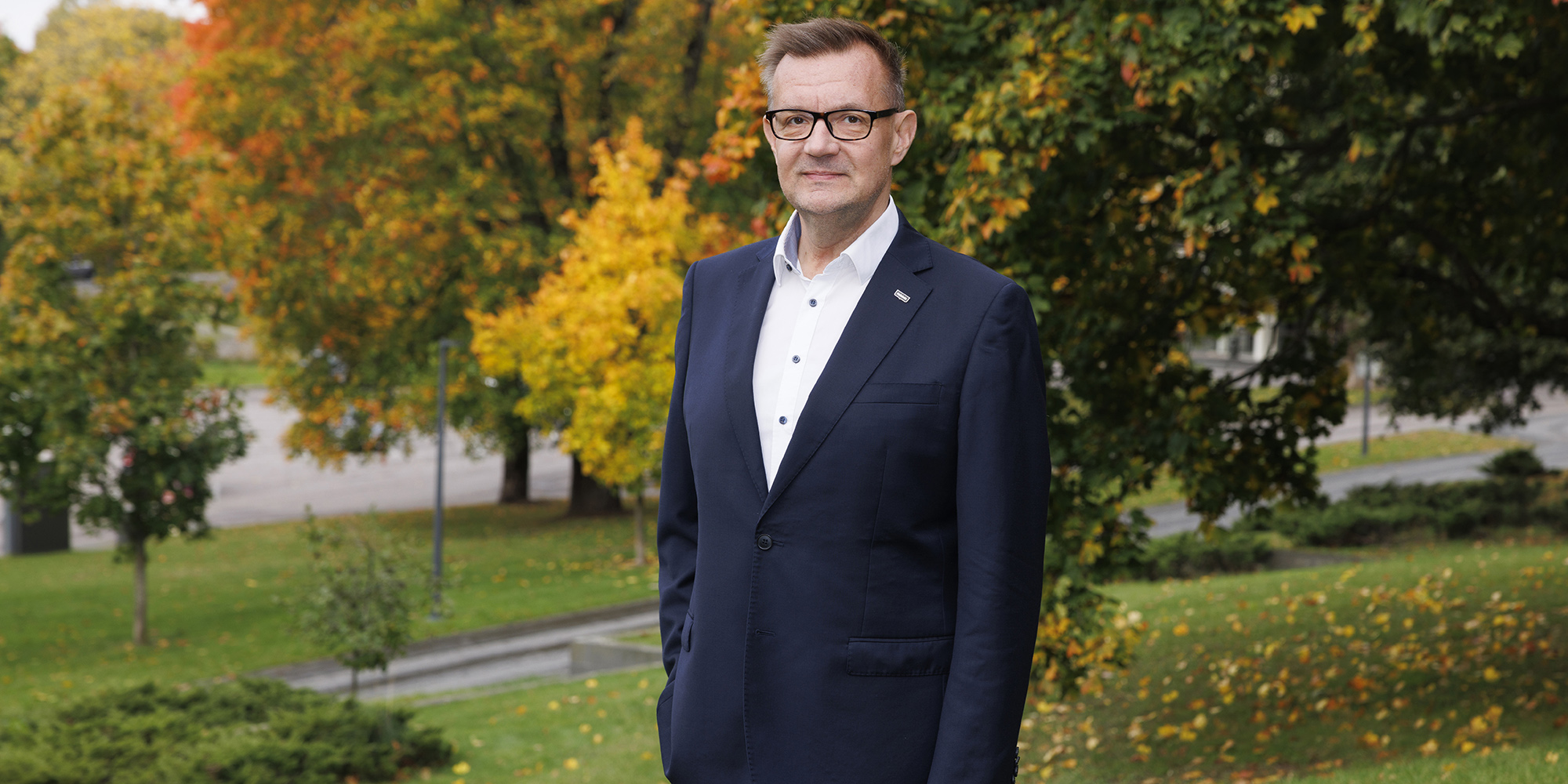Countless talks have been held and texts written on continuous learning – and for a good reason: The world is changing so fast that none of us can predict what will be the in-demand skills in a few years from now. The change applies to professions, job descriptions, and ways of working, and requires from us all not only the readiness to keep learning but also the ability to adapt to change.
A couple of years ago, Senior Advisor Tarja Kallonen from Aalto EE and Senior Lecturer Annemari Kuhmonen from the Laurea University of Applied Sciences noticed that despite all the talk, continuous learning – or lifewide learning, as we say at Aalto University and Aalto EE – was in danger of remaining exactly that – just talk. Thus came into being Jatkuva oppiminen – työelämän tärkein taito (Continuous Learning – the Most Important Skill in the Workplace, Kauppakamari 2021), a book by Kallonen and Kuhmonen that strives to promote learning at the different stages of life and career development.
"We wanted to find concrete examples and solutions to the soapbox speeches on continuous learning and figure out what it means in practice in the business world," Kuhmonen says.
Kuhmonen has extensive experience in global banking and entrepreneurship, while Kallonen previously served as the Head of Financial Work and Competence at the Federation of Finnish Financial Services. That means that both have first-hand experience of competence development and foresight. They believe that companies have the best insight as to what skills and competencies are needed next.
"We were interested in finding out what the senior management really thinks about developing their employees and their competencies," says Kallonen.
We were interested in finding out what the senior management really thinks about developing their employees and their competencies."
In their book, Kallonen and Kuhmonen refer to the Global Human Capital Trends report by the consulting company Deloitte, which claims that as many as 61 percent of Finnish managers did not know how to develop their employees. Nevertheless, during the book project the pair noticed that the attitude towards competence development as such is positive.
"The senior management genuinely want their workers to be so good that the competition wants them, too. That message was quite clear," Kuhmonen says.
The most important workplace skill
As the book's subtitle says, Kallonen and Kuhmonen see continuous learning as the most important skill in the workplace. This is in line with the 2018 report by the World Economic Forum, which lists the metaskills of the future: these include the ability innovate, active learning, critical thinking, and problem-solving.
"These are rather inaccurately referred to as soft skills, when they are in fact the most important, hard skills. Your job teaches you, and you can usually grasp the substance quite fast, but learning the soft skills is more of a challenge," Kuhmonen says.
Learning is just as natural, normal, and wellness boosting as walking and taking care of your health and fitness."
Kallonen and Kuhmonen compare lifewide learning and acquiring new skills to walking. "Learning is just as natural, normal, and wellness boosting as walking and taking care of your health and fitness," they write in the book's foreword.
The attitude is key: the ability and willingness to be inspired and do things a bit differently than before. It also helps to find a learning method that suits you. One way to learn is to write a book, says Kallonen.
"We interviewed thirty people and learned marvelous things while writing the book. It's our way to learn."
The interviewees mainly represent the finance sector, but the practical solutions can be applied across industrial boundaries. Kallonen and Kuhmonen have also interviewed foresight, AI, and workplace wellbeing researchers and specialists both from Finland and abroad.
Are you fit for the labor market?
Whose responsibility is it then to develop one's competence? The individual's, Kallonen and Kuhmonen respond.
"I'd like for all of us to take responsibility for our own labor market compatibility. One of the interviewees said that everyone should see themselves as a business and consider whether the society or some company would be willing to pay for what they have to offer," says Kallonen.
Of course, lifewide learning also requires the employer's input, particularly if coping with the pressures of work feel taxing. Company culture and support from the immediate supervisor play a big role.
"Key factors include leading by example, taking a positive attitude towards learning, and psychological safety. You must also be able to implement strategy in a way that the employees know where the company is going and what kinds of skills are needed now and in the immediate future," Kuhmonen says.
She also encourages companies to think whether development discussions genuinely meet the objectives set for them.
"The dialogue should be continuous, regular, informal, and respond to needs."
Digital Open Badges make skills visible
If a company wants to maintain a culture of continuous learning, it's also important to pay attention to how learning and skills are measured and recognized. Kallonen and Kuhmonen bring up Digital Open Badges as one way to do this: they are visual symbols used to recognize and verify learning regardless of whether the skills have been acquired at an educational institution, at work, or at leisure activities.
"There's a lot of talk about identifying and verifying skills, but learning at work is seldom recognized. The Digital Open Badge system would provide one solution to this problem," Kuhmonen says.
This takes us to Kallonen and Kuhmonen's third main thesis. They criticize the rigid structures that slow down the learning reform, and encourage companies and educational institutions to collaborate to enable practical continuous learning solutions. There's a lot of work to do, for example, in figuring out how the education sector could participate in workplace learning.
"In addition to degrees, we should also focus on tiny micro modules completed alongside work," Kuhmonen envisions.
Cooperation with companies is in its infancy
Kallonen and Kuhmonen call for a dialogue with the business sector.
In their book, they refer to a 2020 report by the Service Sector Employers Palta
that focused on the cooperation between companies and education institutions. According to the report, cooperation is still very much in its infancy and educational institutions are passive towards businesses. Cooperation is mostly limited to career orientation and company-based thesis projects.
Kallonen sees a lot of room for improvement here.
"The applied university sector has been more progressive in this respect, while the research universities can only provide isolated examples," Kallonen says.
"It is, after all, quite a strong message from the business sector when they say that they are neither listened to nor asked about their needs," adds Kuhmonen.
Nevertheless, there are good examples, too, and many of these are highlighted in the book. Kallonen and Kuhmonen hope to see new, successful collaboration initiatives brought on by focusing on the changes in the world of work and listening carefully to what the businesses need.
Tarja Kallonen is Senior Advisor at Aalto EE. Aalto University’s extensive lifewide learning portfolio ranges from individual courses to full degree programmes. Read more about the available courses and programs here.

